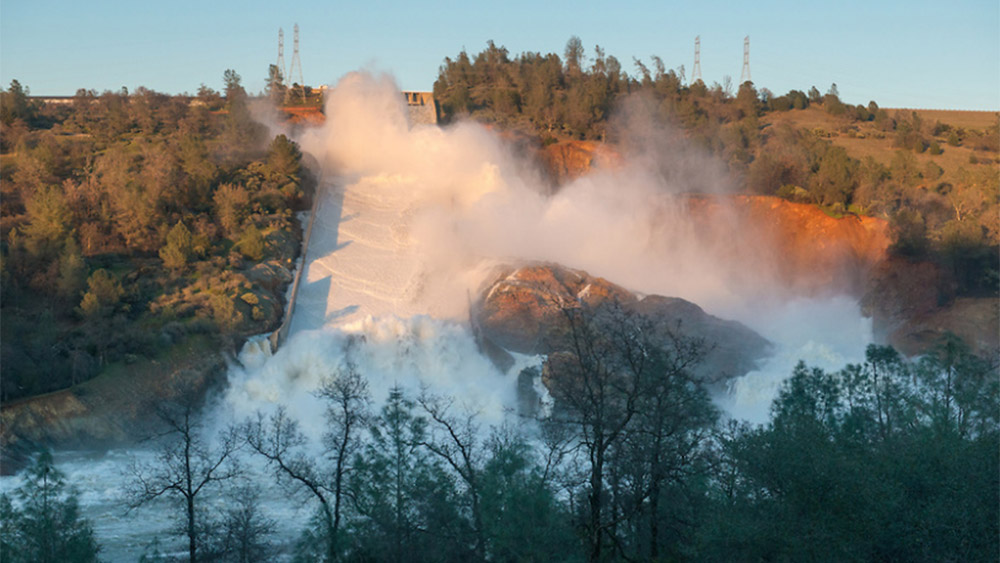
Shockingly, this incident marked just one in a series of attacks on water infrastructure occurring amid the Russia-Ukraine war. Despite the dam being under Russian control, Ukrainian officials and the European Parliament attribute its destruction to Russia.
This incident serves as a microcosm of a global phenomenon, where water-related conflicts are escalating, leaving experts and policymakers grappling with the consequences.
The Pacific Institute's Water Conflict Chronology, a comprehensive effort to catalog and analyze water-related conflicts, reported a staggering 344 instances globally during 2022 and the first half of 2023.
The Water Conflict Chronology sheds light on the complex landscape of water-related conflicts, revealing a major upswing in violent incidents. This surge is attributed in part to the deliberate targeting of dams and water systems in Ukraine and an overall increase in water-related violence across the Middle East and other regions.
A noteworthy concern highlighted by Peter Gleick, co-founder and senior fellow at the Pacific Institute, is the rising trend of attacks on civilian water infrastructure.
Instances of such attacks are disturbingly on the rise, sparking worries about the ramifications for communities already grappling with water scarcity worsened by drought, climate disruptions, growing populations and heightened competition for water resources.
Tracking water-related conflicts for over three decades, Gleick has observed a troubling escalation, with the database now documenting over 1,630 conflicts. This upward trajectory underscores the urgency of addressing the root causes of water-related violence.
The Pacific Institute's meticulous classification of incidents into three categories – those where water or water systems trigger violence, instances where water is used as a "weapon," and situations where water infrastructure becomes a "casualty" of violence – provides a nuanced understanding of the multifaceted nature of these conflicts.
While not every case results in injuries or fatalities, many do, and the impact on communities is profound.
Beyond the Russia-Ukraine war, water-related conflicts have flared up in various regions worldwide.
Disputes over water resources have led to bloodshed in different parts of the world
In countries such as India, Kenya and Yemen, disputes over water resources have led to bloodshed. The Iran-Afghanistan border has witnessed deadly clashes centered on the Helmand River, illustrating the far-reaching consequences of water-related disputes.
A detailed analysis of the Middle East reveals a troubling scenario, with 107 reported conflicts over water since the beginning of 2022.
Approximately 60 percent of these conflicts involve incidents between Israelis and Palestinians. Instances of Israeli military forces destroying Palestinian-owned wells and water systems, clashes over water sources and the demolition of Palestinian infrastructure contribute significantly to the escalating tensions in the region. (Related: Prepping tips: How to survive with a limited water supply.)
In Latin America, environmental activists have become victims of violence. The motives behind these conflicts often involve protecting water sources, forests and rivers from destruction by government-backed corporate entities. The case of Honduran Indigenous activist Berta Cáceres, who was tragically killed in 2016, serves as a stark reminder of the lethal consequences of advocating for water protection.
As the world grapples with the surge in water-related conflicts, Peter Gleick's book, "The Three Ages of Water: Prehistoric Past, Imperiled Present and a Hope for the Future," provides a comprehensive historical perspective.
Gleick traces the roots of water-related conflicts back to ancient Mesopotamia, highlighting the evolution of these issues over centuries.
The rise in violence triggered by water scarcity is a symptom of broader water crises, influenced by weak or corrupt governance, uneven access to water, inequitable distribution of water rights and extreme droughts.
Gleick emphasizes that understanding the driving forces behind these events is crucial for developing effective strategies to reduce the risk of violence over water.
Is the world on the brink of a catastrophic water crisis? Watch this video.
This video is from the channel Mike Martins Channel on Brighteon.com.
More related stories:
Peter Koenig: Israel wants CONTROL of water, hydrocarbons in the Middle East.
World Economic Forum globalists want to leverage water crisis to form world government.
Survival 101: What to do when your water supply is disrupted.
Sources include:
Please contact us for more information.

















